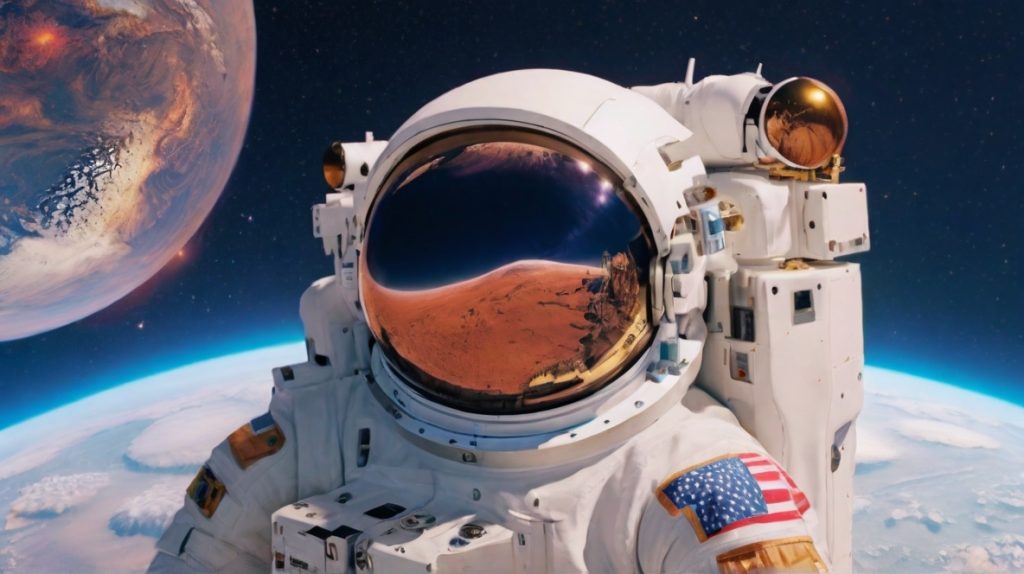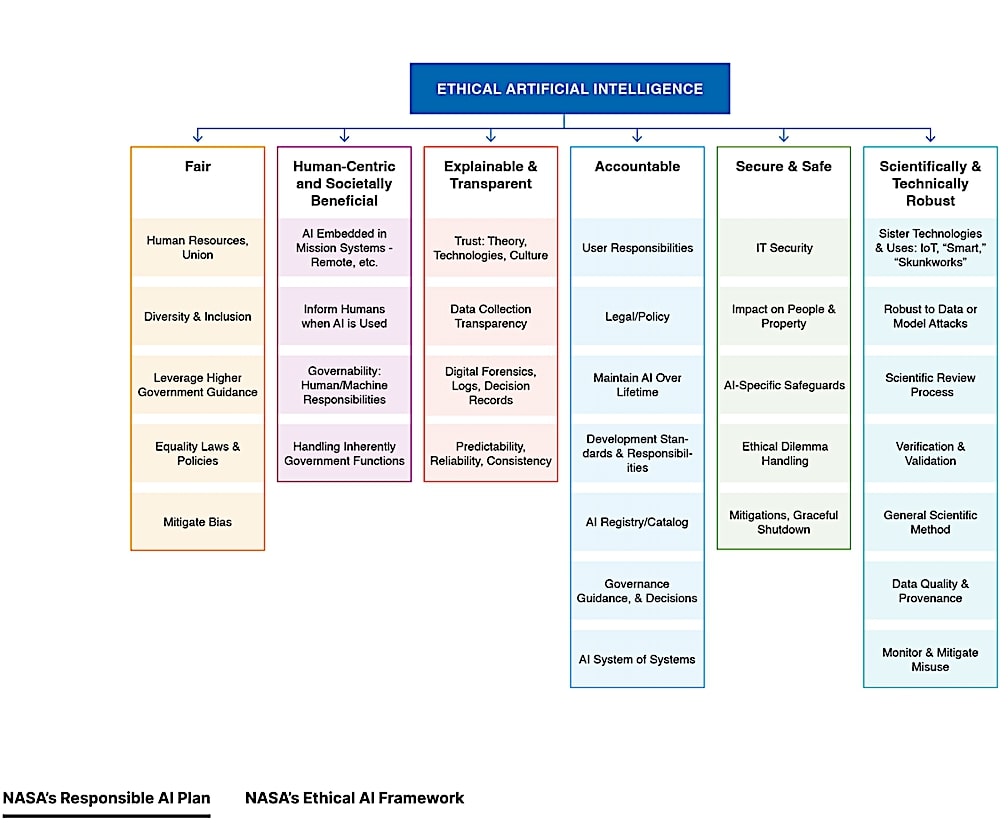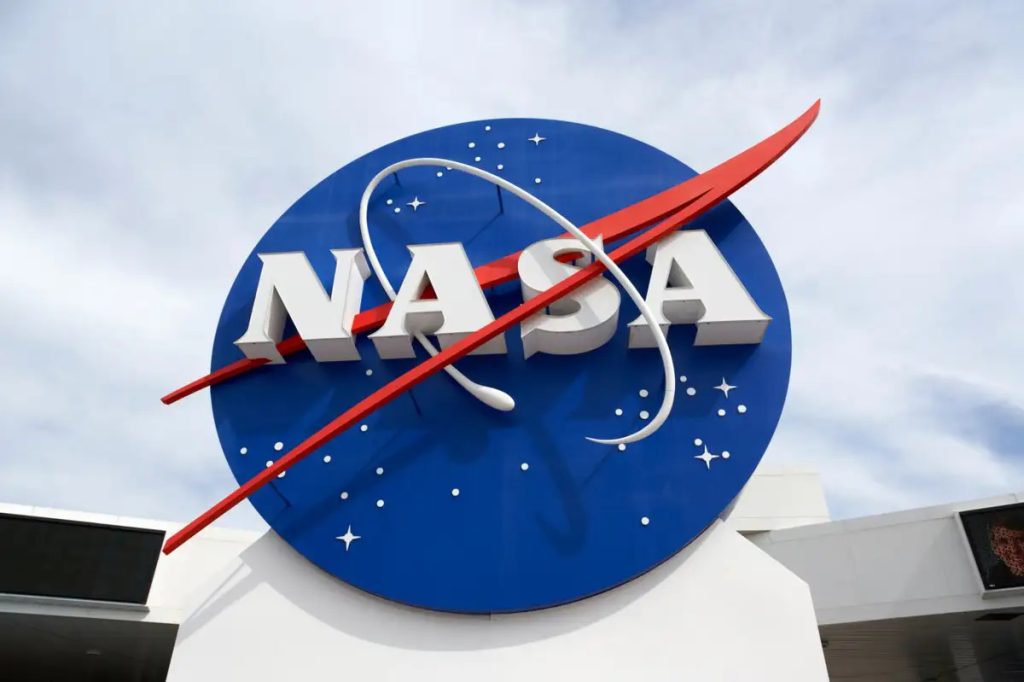NASA has appointed its inaugural chief artificial intelligence (AI) officer, solidifying the agency’s commitment to harnessing the transformative potential of AI technology. David Salvagnini, who previously served as NASA’s chief data officer, has been entrusted with this pioneering role, ushering in a new era of innovation and discovery at the forefront of space exploration and Earth science.
The announcement was made by NASA Administrator Bill Nelson, underscoring the pivotal role AI will play in accelerating scientific advancements. “Artificial intelligence has been a powerful tool at NASA for decades, and as this technology continues to evolve, it holds the promise to propel the pace of discovery to unprecedented heights,” Nelson stated. “By appointing David Salvagnini as our first chief AI officer, we are fortifying our commitment to remaining at the vanguard of AI development and its responsible application, both in the cosmos and here on Earth, for the betterment of all humanity.”

Salvagnini’s appointment aligns with President Joe Biden’s Executive Order on the Safe, Secure, and Trustworthy Development and Use of Artificial Intelligence, reflecting the national imperative to harness AI’s potential while ensuring its ethical and responsible deployment.
In his expanded capacity, Salvagnini will be tasked with formulating NASA’s overarching strategic vision and roadmap for AI development and integration. His responsibilities will encompass spearheading efforts to leverage AI in advanced climate modeling, enhancing our understanding of global warming and informing mitigation strategies. Additionally, he will oversee the agency’s collaborative efforts with other government entities, academic institutions, industry partners, and subject matter experts to ensure NASA remains at the cutting edge of AI innovation.
“I am honored and humbled to take on this pioneering role at NASA,” Salvagnini remarked. “AI has already proven its immense value in propelling NASA’s missions and research endeavors, from analyzing vast datasets to enable groundbreaking discoveries, to developing autonomous systems that support our spacecraft and aircraft. However, we have merely scratched the surface of AI’s transformative potential. By fostering a culture of responsible AI adoption and innovation, we aim to unlock new frontiers in scientific exploration, pushing the boundaries of what is possible.”
Salvagnini’s appointment comes on the heels of a distinguished career spanning over two decades in technology leadership roles within the intelligence community. Most recently, he served as the director of the architecture and integration group and chief architect at the Office of the Director of National Intelligence. His extensive experience in spearheading enterprise-level IT research, development, engineering, and operations, as well as his expertise in advancing data, IT, and AI programs, position him uniquely for this pivotal role at NASA.
Prior to joining NASA in June 2023, Salvagnini served for 21 years in the United States Air Force, retiring in 2005 with the rank of communications and computer systems officer. His military background and deep understanding of complex systems and operations will undoubtedly prove invaluable as he navigates the intricate challenges of integrating AI into NASA’s diverse array of missions and endeavors.
NASA has long been at the vanguard of AI adoption, leveraging these advanced technologies to support a wide range of mission-critical tasks and research projects. From sifting through vast repositories of Earth science imagery to identify areas of interest, to searching for data on exoplanets captured by the James Webb Space Telescope, to scheduling communications for the Perseverance Mars rover through the Deep Space Network, AI has proven to be an indispensable ally.

“AI is woven into the fabric of our operations and scientific pursuits,” Nelson affirmed. “However, as this technology continues to evolve at an exponential rate, we must be proactive in shaping its development and application to align with our core values of ethical conduct, transparency, and the unwavering pursuit of knowledge for the greater good.”
In the months ahead, Salvagnini will spearhead the development of a comprehensive AI strategy for NASA, encompassing guidelines for responsible development, deployment, and governance of AI systems. This will involve collaborating closely with leading AI experts, ethicists, and policymakers to ensure that NASA’s AI initiatives adhere to the highest standards of safety, security, and trustworthiness.
Additionally, Salvagnini will play a pivotal role in cultivating an AI-proficient workforce within NASA, championing the development of specialized training programs and fostering a culture of continuous learning and adaptation. By empowering NASA’s employees with the skills and knowledge necessary to leverage AI effectively, the agency aims to unlock new frontiers of scientific exploration and technological innovation.
“The appointment of a chief AI officer is a testament to NASA’s commitment to staying at the forefront of technological advancement,” remarked Kate Calvin, NASA’s chief scientist, who previously served as the agency’s acting responsible AI official. “With David Salvagnini at the helm of our AI initiatives, we are well-positioned to harness the full potential of this transformative technology while upholding our unwavering dedication to ethical and responsible conduct.”

As NASA embarks on this new chapter, the appointment of David Salvagnini as the agency’s first chief AI officer represents a landmark step in embracing the power of artificial intelligence to propel humanity’s quest for knowledge and understanding. With a strategic vision, unwavering commitment to ethical principles, and a culture of innovation, NASA stands poised to unlock new realms of scientific discovery and technological breakthroughs, shaping the future of space exploration and our understanding of the universe.
Copyright©dhaka.ai
tags: Artificial Intelligence, Ai, Dhaka Ai, Ai In Bangladesh, Ai In Dhaka, Google, Claude, Future of AI, NASA, USA



